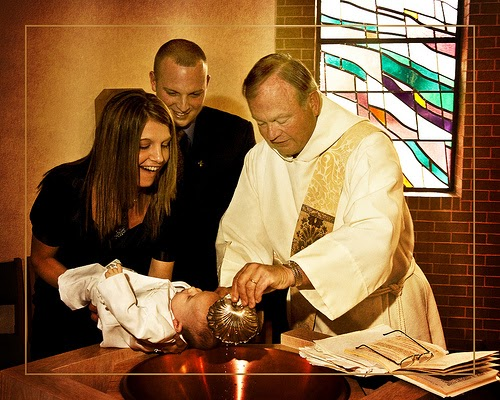Heralds of the Gospel: Understanding the Ministry of Deacons
One of the most moving moments during the ordination Mass of a deacon is the moment he kneels before the bishop. The bishop, in a powerful gesture, places the Book of the Gospels in his hands, saying: “Receive the Gospel of Christ whose herald you have become. Believe what you read, teach what you believe and practice what you teach.” This simple act encapsulates the profound responsibility entrusted to the deacon: to be a messenger, a herald, of Christ himself.
Deacons serve the Church through a threefold ministry: word,
liturgy, and charity, always working in close communion with their bishop.
While many are familiar with their liturgical roles and their dedication to
charitable works, the ministry of the word, the deacon as "herald,"
deserves deeper reflection. How do deacons fulfill this vital role?
Mass Is Only The Beginning
While proclaiming the
Gospel and, in some cases, preaching the homily at Mass is a significant part
of a deacon's ministry of the word, it's not the whole story. Deacons are not
cloistered away; they live in the world, often with families, secular jobs, and
civic responsibilities. Their call to be heralds of the Gospel extends beyond
the walls of the church and into their everyday lives. They are called to live
and proclaim the Gospel in the midst of their families, workplaces, and
communities. As the Catechism of the Catholic
Church (CCC) emphasizes the universal call to holiness,
deacons, by their ordination, are especially equipped to live out this call and
share it with others. Their lives become a living testament to the faith.
Heralds are Faithful Messengers
Deacons, like all
individuals, have their own opinions and perspectives. However, in their role
as heralds of the Gospel, they are called to be faithful messengers, not
editors. They have promised obedience to Christ and their bishop, making them
servants of the Gospel truth. When a deacon preaches or teaches, the faithful
have a right to expect that his words reflect the teachings of the Church,
rooted in Scripture and Tradition. As the CCC (86)
states, the Magisterium, guided by the Holy Spirit, authentically interprets
the Word of God, and deacons, in their teaching role, are to be in communion
with this Magisterium. They are to transmit the deposit of faith, not their own
interpretations.
Living In The World
But Not Of The World
Being a herald of the
Gospel is not always easy. Just as the prophets of old faced opposition, so too
can deacons expect challenges and resistance when they faithfully proclaim the
Gospel. They are often on the front lines of evangelization, calling people to
conversion and a life centered on Christ. This can be particularly challenging
in today's world, where religious liberty, the sanctity of life, and the
traditional understanding of marriage are frequently under attack. Deacons,
inspired by the example of Christ and empowered by their ordination, are called
to be "signs of contradiction," boldly proclaiming the truth even
when it is unpopular. They are called to echo the words of St. Paul in 2
Timothy 4:2, "preach the word; be prepared in season
and out of season; correct, rebuke and encourage—with great patience and
careful teaching."
The rite of ordination beautifully captures the essence of the deacon's role. May all deacons, through their faithful proclamation of the Word, their service in the liturgy, and their dedication to charity, be shining examples of faith, conviction, and authentic Christian witness for us all. They are a gift to the Church, and their ministry is essential for the new evangelization.




Comments
Post a Comment